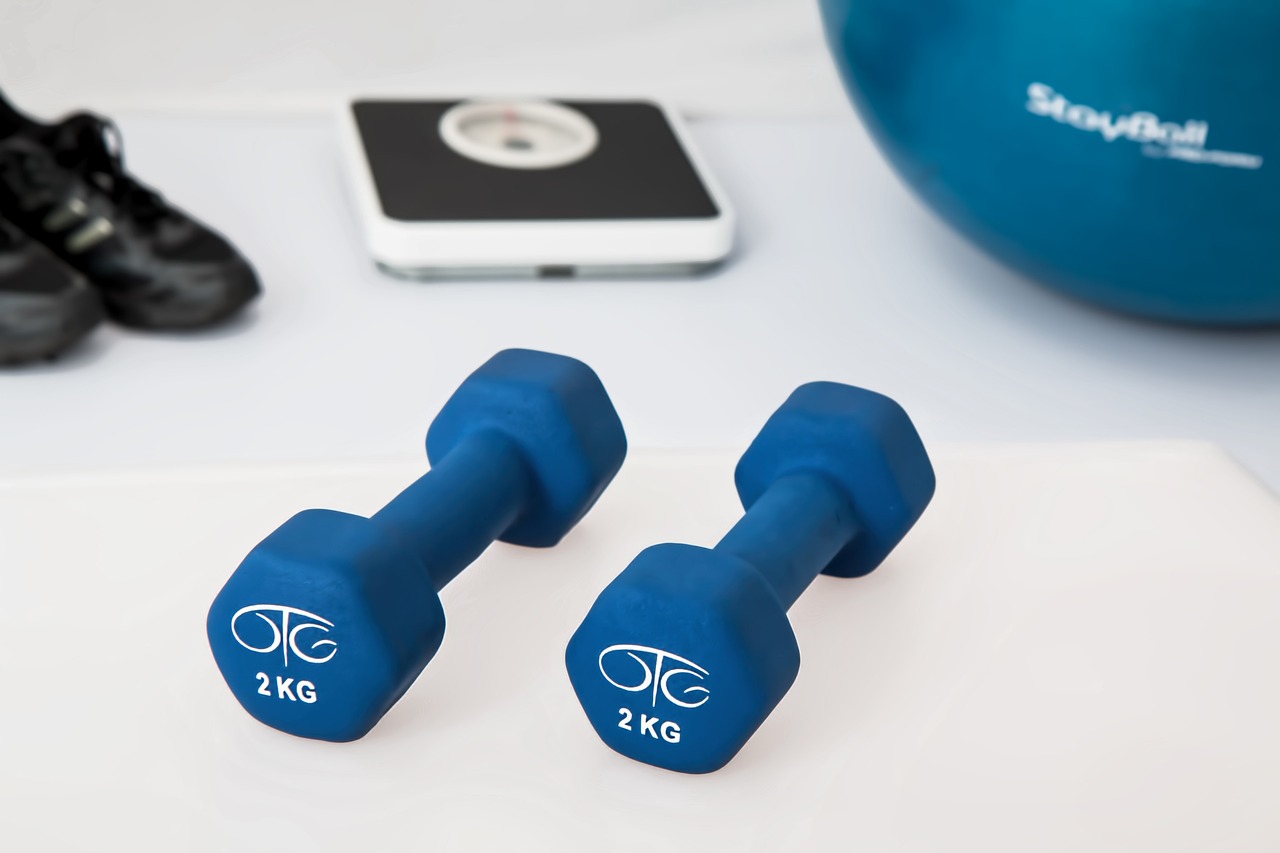Stress Management Tips for a Calmer You
Feeling overwhelmed by the demands of daily life is a common experience for many individuals. However, managing stress effectively is essential for maintaining a sense of balance and well-being. In this article, we will delve into valuable stress management tips that can help you cultivate a calmer mindset amidst life's challenges.
One of the first steps in managing stress is identifying stress triggers. By recognizing the factors that contribute to your feelings of stress, you can take proactive steps to address them. Whether it's work-related pressure, personal relationships, or financial worries, understanding your stressors is crucial for minimizing their impact on your mental health.
Adopting healthy lifestyle habits is another key component of effective stress management. Regular exercise not only boosts your physical health but also enhances your mood and reduces stress levels. Additionally, maintaining a balanced diet and prioritizing sufficient sleep can significantly contribute to your overall well-being.
Mindfulness and meditation are powerful tools for promoting relaxation and reducing anxiety. By practicing mindfulness techniques and incorporating meditation into your daily routine, you can cultivate a greater sense of inner peace and calmness. These practices can help you stay grounded and centered, even amidst life's chaos.
Effective time management is essential for preventing feelings of overwhelm and stress. By prioritizing tasks, setting realistic goals, and organizing your schedule efficiently, you can create a sense of control and structure in your daily life. This approach can help you tackle challenges with a clear mind and avoid unnecessary stress.
Building social support networks is crucial for navigating stressful situations. Maintaining strong relationships with friends, family, and peers can provide you with emotional support, encouragement, and a sense of belonging. Sharing your feelings and experiences with trusted individuals can alleviate stress and help you feel more resilient in the face of adversity.
Exploring relaxation techniques can also play a significant role in managing stress. From deep breathing exercises to progressive muscle relaxation and guided imagery, there are various methods you can use to alleviate tension and promote relaxation. Incorporating these practices into your daily routine can help you unwind and recharge.
Setting boundaries in your personal and professional life is essential for maintaining a healthy balance. By establishing clear boundaries and learning to say no when necessary, you can prevent burnout, reduce conflicts, and create a more harmonious lifestyle. Respecting your own limits and needs is key to preserving your well-being.
Recognizing when to seek professional help is crucial for addressing chronic stress effectively. If you find yourself struggling to cope with overwhelming feelings of stress, don't hesitate to reach out to mental health professionals, therapists, or counselors. Seeking support and guidance can equip you with the tools and strategies needed to manage stress in the long run.

Identifying Stress Triggers
Explore effective strategies to reduce stress levels and improve overall well-being, providing practical advice for maintaining a calmer mindset amidst daily challenges.
Stress triggers can be like hidden landmines, waiting to explode at any moment. By identifying these triggers, you can disarm them before they have a chance to wreak havoc on your mental well-being. Picture stress triggers as puzzle pieces scattered around your mind; once you put them together, you can see the bigger picture and understand what sets off your stress alarms. It could be a demanding workload, a toxic relationship, or even a lack of self-care. By pinpointing these triggers, you gain the power to defuse them, taking control of your emotional landscape.

Healthy Lifestyle Habits
Explore effective strategies to reduce stress levels and improve overall well-being, providing practical advice for maintaining a calmer mindset amidst daily challenges.
Incorporating healthy lifestyle habits is essential for managing stress effectively. Regular exercise, nutritious eating habits, and sufficient sleep play a crucial role in promoting overall well-being. Exercise not only helps in physical fitness but also releases endorphins, the body's natural stress relievers. Eating a balanced diet rich in nutrients fuels your body and mind, enhancing your resilience to stress. Adequate sleep is vital for rejuvenating your body and mind, ensuring you are better equipped to face daily challenges.
Moreover, hydration is often overlooked but is key to maintaining optimal bodily functions and cognitive performance. Drinking enough water throughout the day can help alleviate fatigue and improve focus, contributing to a calmer state of mind.
Creating a routine that includes these healthy habits can significantly impact your stress levels and overall well-being. Consistency is key in developing these habits, as they form the foundation of a balanced and resilient lifestyle.
Additionally, finding activities that you enjoy and that bring you relaxation can further enhance your stress management efforts. Whether it's practicing yoga, going for a nature walk, or engaging in a creative hobby, incorporating enjoyable activities into your routine can provide a much-needed mental break and promote a sense of well-being.
Remember, small changes in your daily habits can lead to significant improvements in your stress levels and quality of life. By prioritizing your health and well-being through healthy lifestyle habits, you can cultivate a calmer and more resilient mindset to navigate life's challenges with ease.
Q: When should I seek professional help for managing stress?
A: It's important to seek professional help if you feel overwhelmed by stress and are unable to cope effectively on your own. Mental health professionals can provide valuable support and guidance in developing coping strategies tailored to your specific needs.
Q: How can mindfulness practices help in stress management?
A: Mindfulness practices, such as meditation and deep breathing exercises, can promote relaxation, reduce anxiety, and improve your ability to stay present and focused. By incorporating mindfulness into your daily routine, you can cultivate a sense of inner peace and enhance your resilience to stress.
Q: What role do social support networks play in managing stress?
A: Maintaining strong relationships with friends, family, and peers can provide emotional support, encouragement, and a sense of belonging during stressful times. Seeking support from your social network can help you feel less isolated and better equipped to cope with stress.

Mindfulness and Meditation
Stress is an inevitable part of life, but how we deal with it can make all the difference in our overall well-being. In this fast-paced world filled with constant challenges and pressures, it's crucial to have effective strategies in place to reduce stress levels and maintain a calmer mindset. Let's explore some practical advice that can help you navigate through daily stressors with ease.
When it comes to finding inner peace and reducing anxiety, mindfulness and meditation are powerful tools that can transform your mental state. Mindfulness involves being fully present in the moment, acknowledging your thoughts and feelings without judgment. By practicing mindfulness, you can cultivate a sense of awareness and acceptance, which can help you navigate through stressful situations with clarity and composure.
Meditation, on the other hand, is a practice that involves training your mind to focus and redirect your thoughts. Through meditation techniques such as deep breathing exercises and guided imagery, you can calm your mind, relax your body, and release tension. These practices not only promote relaxation but also help in reducing stress levels and improving overall well-being.
Imagine your mind as a turbulent ocean, and mindfulness and meditation as the calming waves that gently soothe the storm within. By incorporating these practices into your daily routine, you can create a sense of inner peace and resilience that will enable you to face life's challenges with a calm and composed demeanor.
If you have any questions or concerns about stress management, mindfulness, meditation, or any other related topics, check out the following FAQs for more insights:
- Q: How often should I practice mindfulness and meditation?
- A: It's recommended to practice mindfulness and meditation daily for optimal benefits. Even a few minutes of practice each day can make a significant difference in your stress levels and overall well-being.
- Q: Can mindfulness and meditation help with insomnia?
- A: Yes, mindfulness and meditation techniques can be effective in promoting relaxation and improving sleep quality. By calming the mind and body, these practices can help alleviate insomnia and promote restful sleep.
- Q: Are there specific apps or resources for guided mindfulness and meditation practices?
- A: Yes, there are various apps and online resources available that offer guided mindfulness and meditation sessions. These tools can be helpful for beginners looking to incorporate these practices into their daily routine.

Effective Time Management
Effective time management is like conducting a symphony orchestra; every task, like a musical note, must be in harmony to create a masterpiece of productivity. By prioritizing tasks based on their importance and deadlines, you can ensure that your day flows smoothly without feeling overwhelmed. Setting realistic goals acts as the conductor, guiding your actions towards a successful performance. Just as a musician practices diligently to perfect their craft, managing your time efficiently requires practice and dedication.
One key strategy in effective time management is the Pomodoro Technique, where you work in focused intervals, typically 25 minutes, followed by a short break. This method helps maintain concentration and prevents burnout, allowing you to accomplish tasks with heightened efficiency. By breaking your work into manageable chunks, you can tackle complex projects without succumbing to distractions or procrastination.
Moreover, utilizing time-blocking can significantly enhance your productivity. By allocating specific time slots for different activities, you create a structured routine that optimizes your workflow. This approach not only ensures that essential tasks are completed but also provides flexibility for unexpected events or emergencies that may arise throughout the day.
Another aspect of effective time management is the ability to say no when necessary. Just as a chef carefully selects the ingredients for a perfect dish, you must choose your commitments wisely to avoid spreading yourself too thin. Learning to decline non-essential tasks or requests allows you to focus on priorities that align with your goals and values, preventing time wastage on unproductive activities.
Furthermore, incorporating technology tools such as calendar apps, task management software, and productivity apps can streamline your workflow and enhance your time management skills. These digital aids serve as your personal assistants, reminding you of deadlines, organizing your schedule, and tracking your progress towards goals. Embracing technology empowers you to leverage its capabilities for efficient time utilization and improved productivity.
In essence, effective time management is the art of balancing productivity and well-being, ensuring that you accomplish tasks efficiently while maintaining a healthy work-life harmony. By implementing strategies like the Pomodoro Technique, time-blocking, setting boundaries, and utilizing technology tools, you can transform your daily routine into a symphony of success, where each task harmonizes seamlessly to create a fulfilling and balanced life.

Social Support Networks
Explore effective strategies to reduce stress levels and improve overall well-being, providing practical advice for maintaining a calmer mindset amidst daily challenges.
In the journey towards managing stress, the role of social support networks cannot be overstated. Imagine a safety net that catches you when life throws unexpected challenges your way. Friends, family, and peers form the threads of this safety net, offering emotional support, understanding, and encouragement when you need it the most.
Building and nurturing these relationships is crucial for your mental well-being. It's like having a group of cheerleaders rooting for you from the sidelines, ready to lift your spirits and provide a listening ear during tough times.
Studies have shown that individuals with strong social connections tend to experience lower levels of stress and anxiety. By surrounding yourself with positive influences and reliable shoulders to lean on, you create a sense of belonging and security that can help buffer the impact of stressors in your life.
Moreover, being part of a supportive community can offer fresh perspectives, valuable insights, and shared experiences that remind you that you're not alone in facing challenges. It's like having a shared map to navigate the twists and turns of life, knowing that there are companions by your side.
So, reach out to your social support network when you feel overwhelmed or in need of reassurance. Cultivate these relationships with care, reciprocity, and genuine connection, for they are the pillars that uphold your emotional well-being in times of turbulence.

Relaxation Techniques
When it comes to managing stress, incorporating relaxation techniques into your daily routine can make a significant difference in promoting a calmer mindset. One effective method is deep breathing exercises, which help to slow down your heart rate, lower blood pressure, and reduce tension in the body. By focusing on your breath and taking deep, intentional inhales and exhales, you can signal to your body that it's time to relax and unwind.
Another relaxation technique worth exploring is progressive muscle relaxation, a practice that involves tensing and then releasing different muscle groups in the body. This method can help you become more aware of where you hold tension and stress, allowing you to consciously release it and experience a sense of physical and mental relief. By systematically working through each muscle group, you can promote overall relaxation and reduce the impact of stress on your body.
Guided imagery is another powerful relaxation technique that involves visualizing peaceful and calming scenes to help your mind escape from stress and anxiety. By creating vivid mental images of serene environments or pleasant experiences, you can shift your focus away from negative thoughts and emotions, promoting a sense of relaxation and inner peace. This practice can be particularly effective in moments of high stress or when you need a mental break from overwhelming situations.
Combining these relaxation techniques with mindfulness practices can further enhance their effectiveness in reducing stress levels and promoting overall well-being. Mindfulness encourages you to stay present in the moment, observe your thoughts and feelings without judgment, and cultivate a sense of acceptance and awareness. By integrating mindfulness into your relaxation routine, you can develop a greater sense of calmness, resilience, and emotional balance in the face of daily stressors.

Setting Boundaries
Setting boundaries is crucial for maintaining a healthy balance in both personal and professional relationships. By clearly defining your limits and communicating them effectively, you create a framework that respects your needs and values. Just like a fence around a garden protects the plants from outside threats, setting boundaries safeguards your well-being from emotional and mental stressors. It's about establishing guidelines on what is acceptable and what is not, empowering you to protect your time, energy, and emotions.
When setting boundaries, it's essential to be assertive yet respectful. Clearly communicate your limits without being aggressive or passive. Think of it as drawing a line in the sand that signifies your personal space and autonomy. By setting boundaries, you establish a sense of self-respect and self-worth, showing others how you expect to be treated. It's like creating a safety net that shields you from unnecessary conflicts, drama, and emotional drain.
Moreover, setting boundaries allows you to prioritize your well-being without feeling guilty. It enables you to say 'no' when necessary, protecting your mental health and preventing burnout. Just as a traffic light regulates the flow of vehicles, setting boundaries regulates the flow of interactions in your life. It helps you maintain a healthy balance between giving and receiving, ensuring that your needs are met while respecting the needs of others.
Remember, boundaries are not walls to isolate yourself but bridges to connect authentically with others. They serve as guidelines for healthy communication, mutual respect, and emotional safety. By setting boundaries, you create a harmonious environment where relationships thrive, conflicts are minimized, and personal growth is encouraged. It's like tending to a garden, where each plant has its space to grow and flourish without being overshadowed by others.
In conclusion, setting boundaries is a fundamental aspect of self-care and emotional well-being. It's about defining your limits, communicating them clearly, and upholding them with confidence. Just as a captain steers a ship to stay on course, setting boundaries guides you towards a balanced and fulfilling life. Embrace the power of boundaries to cultivate healthy relationships, protect your mental health, and nurture a sense of inner peace.

Seeking Professional Help
When it comes to managing stress effectively, there are times when seeking professional help becomes essential. Professional support from mental health professionals, therapists, or counselors can provide valuable insights and strategies to address chronic stress and promote long-term well-being. These professionals are equipped with the expertise to help individuals navigate through challenging situations and develop coping mechanisms tailored to their specific needs.
One of the key aspects of seeking professional help is the opportunity to explore underlying issues that may be contributing to heightened stress levels. Through therapy sessions, individuals can delve into their thoughts, emotions, and behaviors in a safe and supportive environment. This self-exploration can lead to a deeper understanding of the root causes of stress and pave the way for effective strategies to manage and alleviate it.
Therapists and mental health professionals also offer evidence-based interventions and techniques to help individuals develop healthy coping mechanisms. These may include cognitive-behavioral therapy (CBT), mindfulness practices, relaxation techniques, and stress management strategies tailored to the individual's unique needs. By working closely with a professional, individuals can learn how to reframe negative thought patterns, regulate emotions, and build resilience in the face of stressors.
Moreover, seeking professional help can provide a sense of validation and support during challenging times. Therapists and counselors offer a non-judgmental space where individuals can express their concerns, fears, and struggles openly. This validation can be empowering and reassuring, helping individuals feel heard and understood as they navigate their stressors and work towards a calmer mindset.
It's important to remember that seeking professional help is not a sign of weakness but a proactive step towards prioritizing mental health and well-being. Just as we seek medical help for physical ailments, addressing mental health concerns with the help of professionals is crucial for overall wellness. By reaching out for support when needed, individuals can gain valuable tools and insights to manage stress effectively and lead a more balanced and fulfilling life.
Frequently Asked Questions
- What are some common signs of stress?
Common signs of stress include irritability, fatigue, difficulty concentrating, muscle tension, and changes in appetite or sleep patterns.
- How can I effectively manage stress in my daily life?
To manage stress effectively, try incorporating healthy lifestyle habits, practicing mindfulness and meditation, setting boundaries, seeking social support, and utilizing relaxation techniques.
- When should I consider seeking professional help for stress?
If you experience chronic stress that significantly impacts your daily functioning or mental health, it may be beneficial to seek support from mental health professionals, therapists, or counselors.
- What are some relaxation techniques that can help reduce stress?
Relaxation techniques such as deep breathing exercises, progressive muscle relaxation, guided imagery, and mindfulness practices can all help alleviate tension and promote relaxation.
- How important is it to have a social support network for managing stress?
Maintaining strong relationships with friends, family, and peers is crucial for seeking emotional support, encouragement, and a sense of belonging during stressful times.



















